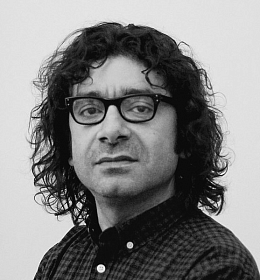hall
Artists
Credits
Libretto by Yury Grigorovich after the novel of the same name by Raffaello Giovagnoli, libretto by Nikolay Volkov and stories of ancient history
Staged by Yury Grigorovich
Stage Designer: Simon Virsaladze
Principal Chorus Master: Vyacheslav Podyelsky
Designers of the revival: Vladimir Rumyantsev (sets), Mikhail Sokolov (lighting)
Répétiteurs: Vladimir Grigoriev, Tatiana Kladnichkina, Alexander Kurkov, Yana Serebryakova
Chorus Master: Sergey Tenitilov
Pianists: Svetlana Koshkaryova, Italia Novikova, Victoria Solomina, Stanislav Ten
3 hours
two intermissions
Première of the production: 11 March 1977
Revival of the production: 30 April 2011
Performed on tours to Italy (1979, 2003), Spain (1991, 1995), Argentina (1991), Egypt (1994), Portugal (1995, 1996), Holland, Belgium (1996), Macao (1996), Japan (1998), Republic of Korea (2007)
Spartacus by A. Khachaturian is one of the largest ballet productions on the Novosibirsk stage: both the size of the scenery and phenomenal might and power coming from the characters, should it be Spartacus, Crassus or gladiators of Ancient Rome, simply amaze. The production is staged by legendary Yuri Grigorovich and Simon Virsaladze.
The ballet is set in Ancient Rome.
Act I
Scene 1. Invasion
The military machine of imperial Rome, led by Crassus, wages a cruel campaign of conquest, destroying everything in its path. Crassus is cruel and inhuman. One of the chained prisoners, who are doomed to slavery, is Spartacus the Thracian.
Scene 2. Rome
Slave traders separate the male and female prisoners for sale to rich Roman patricians. Spartacus is parted from his beloved Phrygia. Phrygia’s monologue. She is overcome with grief: her beloved Spartacus has become a slave, she has become a slave and anybody who will buy her, will take her from Spartacus.
Scene 3. Orgy at Crassus’ palace
The most terrible thing has happened: Phrygia was bought by Crassus. Aegina, Crassus’ concubine, doesn’t understand Phrygia’s fright and laughs at her. Aegina only likes gold, power, wine, slaves’ blood — everything that emblazes her own blood. Two gladiators are pushed into the room. The one who wins, will live. They are to fight to death in helmets with closed visors. The victor’s helmet is removed. It is Spartacus.
Spartacus’ monologue. Against his will, Spartacus has been forced to murder a fellow man. What will they force him to do next? What can he do? What does he want to do?
Scene 4. Gladiators’ barracks
He wants to live in his own land, to love his wife, to be free. He needs to break the chains, to escape slavery. That’s what Spartacus calls gladiators for. His friends swear an oath of loyalty to him. Gladiators flee from the barracks.
Act II
Scene 1. The Appian Way
The shepherds’ peaceful rest is interrupted by the gladiators. Spartacus calls the shepherds to join the rebels, and not only shepherds support their revolt: a great number of slaves join the few gladiators. They proclaim Spartacus as their leader.
Spartacus’ monologue. A leader? But not like Crassus. Spartacus will take the power only to give freedom back to thousands of people, to his Phrygia. Where is she? He must find her and set free!
Scene 2. Feast at the Crassus’ villa
Spartacus has found Phrygia. The two lovers are overjoyed at their reunion. But, due to the arrival of a procession of patricians, led by Aegina, they are forced to hide.
Aegina’s monologue. Crass wants to suppress the whole world, Aegina wants to gain power over him. He uses power and cruelty, she uses guile and trickery. But their goals are the same: power, glory, and wealth.
Scene 3. Crassus’ triumph
The patricians praise Crassus: he is the God on earth, his victories being his Olympus. The festivities are cut short by an alarming piece of news: Spartacus and his troops have surrounded the villa. The renowned military leaders disperse, as well as panic-stricken Crassus and Aegina...
Spartacus’ monologue. Victory! The power of the Romans lies only in the weapons of legionnaires and obedience of those defeated. Patricians are cowards! All the revolted slaves must know that.
Scene 4. Crassus’ defeat
Crassus is caught and brought to Spartacus. The patrician recognizes the gladiator. The rebels want to kill the Roman military leader, but Spartacus takes the swords away. Crass can save his life in a battle — like gladiators did. The rebels are not killers, they are soldiers. Crassus is defeated by Spartacus, and the gladiator chases him away: he despises Crassus, let them all see the cowardliness and vanity of the arrogant patrician.
Act III
Scene 1. The plot
Crassus is tormented by his disgrace. He swears to revenge the slaves, who have put him to his knees. Fanning his hurt pride, Aegina calls on him to take his revenge. Crassus summons his military leaders — off to battle! Death to the rebels! Aegina sees him off.
Aegina’s monologue. Spartacus, take care! Nobody can do what an enraged woman can do! She will revenge for her fear not be the concubine of the first military leader.
Scene 2. Spartacus’ encampment
Aegina comes to the encampment of Spartacus’ supporters. Phrygia is frightened for a reason: her loving heart feels something bad in the darkness of the night. Spartacus is trying to comfort her, but she is worried not about herself. Spartacus gets the news: Roman legionnaires are going to attack them. Spartacus offers a plan of the battle and asks his leaders to swear an oath of loyalty. The weak ones are frightened by Spartacus’ adventurous plan.
Spartacus’ monologue. The rebels will lose the battle, if there is discord between the leaders. It will weaken their forces. But it’s better to die in the battle than to live in the chains.
Scene 3. Treachery
The loyal leaders are waiting for a signal from Spartacus to start the battle and follow him at a word. In a instant the wavering ones would join them, but Aegina appears from the darkness of the night. Together with the courtesans she seduces the men with wine and erotic dances and, as a result, the wavering ones become traitors. Having lured them into a trap, Aegina hands them over to Crassus. Crassus will generously reward Aegina for her help.
Crassus’ monologue. Spartacus shall pay with his death for the humiliation that he, Crassus, was forced to undergo. Crassus will catch up with his forces and will destroy him!
Scene 4. The last battle
Spartacus’s forces are surrounded by the Roman legions. Spartacus’ devoted friends perish in unequal combat. Spartacus fights on fearlessly right up to the bitter end but, closing in on the wounded hero, the Roman soldiers crucify him on their spears. Phrygia retrieves Spartacus’ body from the battle field. She mourns her beloved, her grief is inconsolable. Together with Phrygia, Freedom will mourn its first hero, who rose against serfdom. His name and his deed are immortal.












